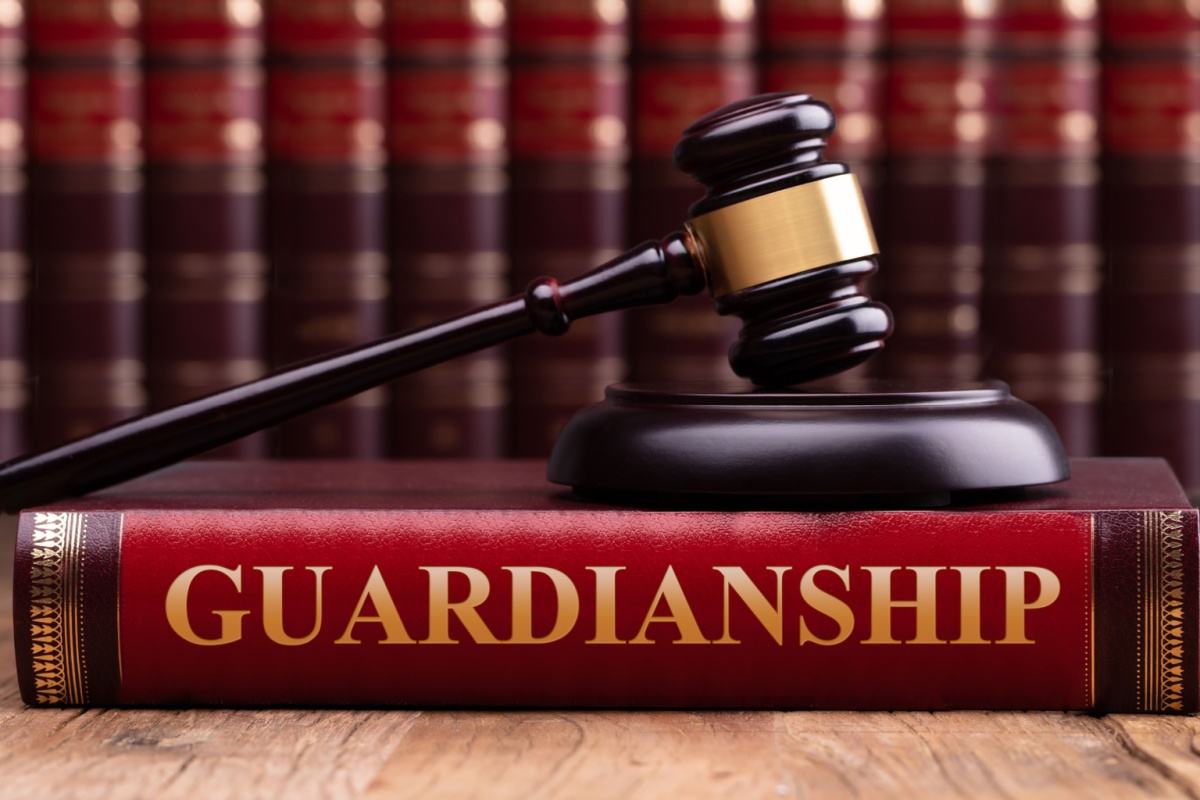
How Legal Guardianship of an Adult Works in Louisiana
When Amanda Bynes started a small fire in a driveway in 2013, it was determined to be more than just her letting out a grudge. Instead, the action was linked to a bipolar condition, and Lynn Bynes, her mother, took up the role of a guardian over her.
Amanda was 27 years old at this time, and the idea of taking up authority over another individual looks more familiar when we’re talking about children. Nonetheless, the guardian relationship continued until February 2022 when the court ruled that it was no longer needed.
On what grounds did Lynn have control over Amanda’s affairs? On what ground can one individual have guardianship/conservatorship/curatorship over another adult? Keep reading as we answer these questions comprehensively, providing you with essential definitions, distinctions, and what the process of having this authority entails in Louisiana.
What is Legal Guardianship?
Legal guardianship is the authority and duty granted to an individual (guardian) to make decisions on the personal and financial affairs of another individual (ward). The authority is granted by a court of competent jurisdiction and only on the grounds that the ward is incapable of acting or making reasoned decisions independently.
The Uniform Guardianship, Conservatorship, and Other Protective Arrangements Act proposes a uniform definition of these forms of relationships to the 50 states. It says “guardianship” represents the authority granted by a court to take over the physical day-to-day affairs of another person. When it comes to authority over only the ward’s finances, the relationship should then be known as a conservatorship.
In practice, however, these definitions haven’t been entirely adopted. The term used to represent guardian relationships depends on the age and jurisdiction of the ward involved, with application in Louisiana proving to be comparatively unique.
Legal Guardianship in Practice Across States
More commonly, “guardianship” refers to authority over the personal physical affairs of a child or minor (an individual under the age of 18). The parents are the natural guardians of a minor but when these parents are incapable of remaining guardians due to illness, imprisonment, or death, a court process is then initiated to grant guardianship to another competent adult. This individual is sometimes designated by the parents for approval by the court when appropriate.
“Conservatorship” has been the term used to refer to the guardianship of an adult or emancipated minor in terms of both personal and financial affairs. Anemancipated minor is anyone under the age of 18 years that has been judicially adjudged to be competent to manage his or her affairs
The conservator is the “guardian”, while the conservatee is the “ward”; we see this used in States like California. Lynn Bynes’ “guardianship” over Amanda was in fact a conservatorship that granted Lynn authority over Amanda’s finances, medical care, and various personal affairs.
Guardianship of an Adult in Louisiana
The guardianship of an adult in Louisiana is uniquely known as a curatorship and it has the same definition as conservatorship as used in other states. A curatorship is Louisiana’s term for the authority given to one adult to take over the personal and/or financial affairs of another adult.
The court process for determining curatorship is called an interdiction, the “guardian” is called the curator, and the “ward” is called the interdict. The general term “guardianship” remains only applicable to minors.
Now, there are two types of interdictions that a curator may request from the court.
- Limited Interdiction or Curatorship: a limited interdiction only involves the partial transfer of rights from the interdict to the curator. The partial transfer is either a transfer of authority over personal affairs or authority over financial affairs and not both.
- Full Interdiction or Curatorship: Full interdiction involves the transfer of authority over both the personal and financial affairs of the interdict to the curator.
Grounds for Obtaining Legal Guardianship in Louisiana
For a curatorship to be successfully granted by a court in Louisiana, both the curator and interdict need to meet certain criteria.
Grounds For the Interdict
Generally, an interdict is anyone who is deemed incompetent — anyone incapable of completing essential physical tasks or making clear decisions due to certain infirmities. More specifically, an adult needs a curator if;
- He or she has a mental illness such as Alzheimer’s disease, dementia, or bipolar disorder, to mention a few. This covers any illness that affects the ability to think clearly without making detrimental decisions affecting physical or financial health. Amanda Bynes suffered from bipolar disorder and this caused her to take detrimental actions on the property of others. Mental infirmity was also the ground with Britney Spears’ Californian case in 2008. Britney was subject to a psychiatric assessment ruling and eventually put into curatorship (conservatorship) under her father.
- He or she suffers from physical infirmities from birth or caused by a car accident, for example. The infirmity would be a disability that makes the individual incapacitated from performing day-to-day tasks like dressing, moving, or eating.
Who Can Be a Curator?
According to the Louisiana Code of Civil Procedure Tit. VIII, Art. 4561‘s regulations on appointing a curator, the following persons can be granted curatorship over another adult. By preference;
- A person designated by the interdict in signed writing if he or she has sufficient mental abilities to do so
- The spouse of the defendant
- An adult child of the defendant
- A parent of the defendant
- Anyone who the interdict has resided with for more than six months before the petition was filed
- Any other adult
The court may also appoint separate individuals as curators for the personal and financial affairs of the interdict. The court also has the freedom to revoke and redesignate the appointment of a curator.
Who Cannot Be a Curator?
The LA Code Civ Pro 4561 also identifies individuals that cannot be granted curatorship over another adult. By an absolute limitation, these are;
- Individuals under 18 (minors). This limitation does not apply to an emancipated minor.
- An interdict
- A nonresident of Louisiana without a resident representative to take over the petition process
By a conditional limitation where the court may consider granting curatorship, these are;
- Convicted felons
- An individual indebted to the interdict
- An individual with a pending lawsuit against the interdict
- An affiliate of a care institution where the interdict is receiving care except this individual is a relative
Without notice or opposition, the court may grant temporary curatorship to a qualified individual before the primary interdiction hearing. The temporary curatorship holds only if the injury or disability is apparent.
Steps to File For Guardianship
Chapter One of Louisiana’s TITLE VIII. INTERDICTION AND CURATORSHIP OF INTERDICTS state the process of interdiction or steps to filing for curatorship. For success, the following steps have to be taken with a legal representative guiding through the process:
- Submit a petition for interdiction to the court. The petition for interdiction must contain various information including:
- The name, age, and address of the interdict, petitioner, and proposed curator.
- A description of the infirmity that warrants an interdiction.
- Justifications for limited or full interdiction, including details of the nature of rights to be interdicted (either personal or financial).
- The name of the interdict’s spouse, children, parents, or any close adult relative, if any.
- Service the petition to the defendant and notice to any interested party.
- Wait for the appointment of an attorney to represent the defendant.
- Wait for the appointment of an expert examiner who looks into the alleged infirmities. The examiner provides a report on the appropriate steps to take.
- Serve notice of the date fixed for the interdiction hearing.
- Engage in legal proceedings where the court determines if interdiction is necessary. The petitioner must prove through clear evidence that interdiction is necessary.
- The court gives its judgment on granting curatorship.
- In post-judgment proceedings, the court may change the terms of interdiction or terminate interdiction entirely. Modification or termination is done when new evidence comes to light.
- The case may be taken to a competent court of appeal to override the judgment. An appeal is submitted either by the intended curator or defendant, and the decision of the appeal court becomes applicable.
During the petition and court hearing, the interdict is always referred to as the defendant. The venue for these legal proceedings is where the defendant resides or where he is physically present within Louisiana.
If the court’s decision is in the petitioner’s favor, curatorship is granted to the proposed curator. If the case fails, the defendant retains all authority over personal and financial affairs. An undercurator is also appointed by the court to monitor the curator, who is an official that ensures the affairs of the interdict are run appropriately.
Role & Responsibilities of a Legal Guardian
Once curatorship is granted, the legal guardian is responsible for only one thing — acting in the best interest of the interdict. The curator must always protect and manage the estate, education, and physical well-being of the interdict as best as he can.
Responsibility includes the payment of medical bills, administration of proper physical care and services, helping to sign legal documents, and the preservation of wealth, just to mention a few.
Rights of a Legal Guardian
The rights of the curator, however, only extend to the terms set by the court. A limited interdiction on personal affairs, for instance, means the curator has no authority over the finances of the interdict.
Looking at Britney Spears’s controversial conservatorship helps us understand the extent of the curator’s rights and responsibilities. The court granted conservatorship over Britney to her father, Jaime Spears after she was deemed mentally incompetent to manage her affairs in 2008. The authority given by the Californian court extended to her physical/medical care as well as finances, a full interdiction according to Louisianan law.
The relationship lasted till 2022 when the court stripped Jaime of his authority and granted temporary conservatorship to John Zabel. Why the change in conservator?
Well, Jaime was accused of abusing his conservatorship rights. He mismanaged Brintney’s wealth for personal gain, bugged her room and mobile devices with surveillance devices, and was accused of forcing her to perform against her will. During the trial, Jaime was also accused of spending close to $2 million of Britney’s wealth on legal representatives just to keep his conservatorship.
After stripping him of his authority, prosecutors also commenced criminal proceedings against Jaime due to his accused conduct of recording private activity. All these meant Jaime wasn’t acting in Britney’s best interest and exceeded his rights as a curator.
Seeking Legal Guardianship of an Adult in Louisiana

The legal guardianship of an adult, known as a curatorship in Louisiana, is a legal tool nobody should frown upon. It helps the court to protect the rights of anyone suffering from an infirmity.
The processes around successfully seeking and keeping curatorship help the court to achieve and maintain its goals. The tediousness of court hearings helps it determine the necessity and extent of curatorship, while the undercurator helps ensure the best interests of the interdict are given priority. Please seek an attorney in Louisiana by calling at 504-780-8232 or contact us online.



